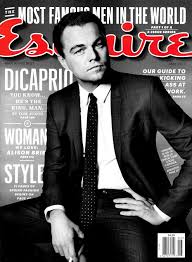esquire
英 [ɪˈskwaɪər]
美 [ˈe.skwaɪr]
- n. 先生;绅士
星级词汇:

记忆方法
为了记忆单词“esquire”,可以将其拆分为“es”和“quire”。其中,“es”可以联想到“es”表示“it’s”(它就是),而“quire”与“query”(询问、疑问)有关。将这些元素结合起来,可以想象成它是在以一种庄重的方式提出一个问题或请求,暗示“esquire”是一个具有尊贵身份或职业地位的人,例如律师助手或绅士。这样,每次想到“esquire”时,这个关联可以帮助你记住它的意思。
以上内容由AI生成, 仅供参考和借鉴
中文词源
esquire 先生
e-, 缓音字母。squire, 持盾者,来自PIE*skeu, 隐藏,保护,词源同hide, house. 原指国王的侍从,后用于尊称。
英语词源
- esquire
-
esquire: see squire
- esquire (n.)
- late 14c., from Middle French esquier "squire," literally "shield-bearer" (for a knight), from Old French escuier "shield-bearer (attendant young man in training to be a knight), groom" (Modern French écuyer), from Medieval Latin scutarius "shield-bearer, guardsman" (in classical Latin, "shield-maker"), from scutum "shield" (see hide (n.1)). For initial e-, see e-. Compare squire (n.). Originally the feudal rank below knight, sense broadened 16c. to a general title of courtesy or respect for the educated and professional class, especially, later, in U.S., regarded as belonging especially to lawyers.
In our own dear title-bearing, democratic land, the title of esquire, officially and by courtesy, has come to include pretty much everybody. Of course everybody in office is an esquire, and all who have been in office enjoy and glory in the title. And what with a standing army of legislators, an elective and ever-changing magistracy, and almost a whole population of militia officers, present and past, all named as esquires in their commissions, the title is nearly universal. [N.Y. "Commercial Advertiser" newspaper, quoted in Bartlett, 1859]
权威例句
- 1. He examined the ads in " The New Yorker " and " Esquire. "
- 他翻阅了《纽约人 》 和《绅士 》 杂志上的不少广告.
- 2. This was said in an Esquire interview on april 23, 2008.
- 这是说,在一个君子采访时对2008年4月23日.
- 3. Trends Esquire display in newsstand in an impressive and eye - catching way.
- 《时尚先生》在报摊亭的醒目摆放,强烈吸引读者眼球.
- 4. Halle Berry has been named the sexiest woman alive by Esquire magazine.
- 哈利·贝瑞被《时尚先生》杂志风味最性感的女性.
- 5. It was Phileas Fogg , Esquire.
- 那是斐利亚·福克.